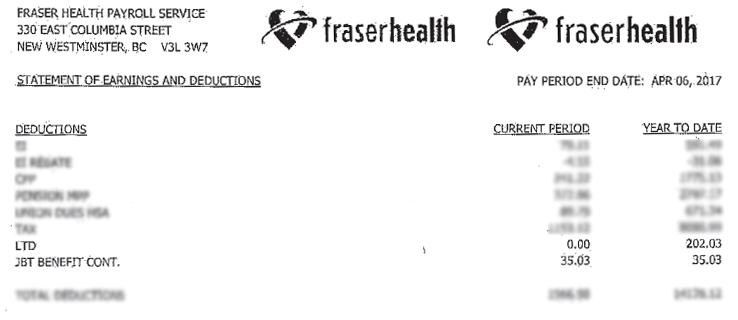BURNABY – The BC Labour Relations Board (LRB)’s recent decision dismissing raid applications by the BC Nurses (BCN) sends a clear message that predatory organizing tactics will not be tolerated in the health care sector and that the protection of labour relations stability remains a top priority, says CUPE.
In a decision released on April 11, the Board dismissed all seven BC Nurses (BCN) raid applications filed late last year. In the applications, the BCN attempted to carve out two classifications within the Health Science Professionals Bargaining Association (HSPBA) across a number of health authorities: Psychologists and Psychometrists – Testing Technicians.
In recent years, the BCN successfully raided all 7,000-plus LPNs from HSA, HEU and CUPE in the HSPBA as an exception to the Board’s normal policy against classification-based raids. In the recent case, the BCN sought to expand on that exception, in order to represent a much smaller group made up of Psychologists and Psychometrists who were members of HSA and PEA.
HSA and PEA filed objections to the raids, raising a number of technical and substantive arguments. CUPE, HEU and BCGEU intervened in the case, also opposing the raid applications. In a comprehensive and well-reasoned decision, Vice-Chair Kandola dismissed the BCN’s raid applications as they did not identify units appropriate for representation.
The Vice-Chair did not address all of the objections raised but, after a thorough review, found that she could decide the case based on two primary objections. First, the raid applications constituted partial raids—problematic in the health care sector because “such applications lead to fragmentation of the existing bargaining unit and result in a proliferation of bargaining agents.” Second, the raid applications were classification-specific. Such units, said Kandola, “run afoul of the Board’s well-established appropriateness principles, would lead to the inappropriate proliferation of units within the subsector, and give rise to industrial instability.”
The LRB’s rejection of such raiding tactics is a resounding defeat for the BCN’s predatory raiding activities across the health sector in B.C. With this decision, the Board has stamped out any hope that they might expand on the LPN exception or revisit their established policy against raids that fragment existing units—making this a good decision for labour relations stability in health care.

